
There are no perfect jobs. The reality is, every job is what we make of it. There are better and worse jobs, roles that fit and those that don’t. Not everything we do in life will fit who we are or where we excel. As we work with students and employees to find places of best fit in response to this reality, we need to teach them how to job craft. However, job crafting needs to take on new depth if we are to truly help individuals craft worthwhile experiences out of their current and future work. Job crafting needs to start with purpose.
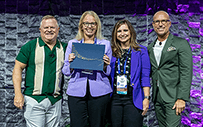
The small college winner of the 2025 NACE Career Services Excellence Award, Furman University developed its “Four-Year Pathway,” a program that spans students’ undergraduate career and prepares them to enter the workforce.

The Olinde Career Center at LSU launched Talking Tiger Talent as a way to modernize and scale the center’s employer outreach efforts.

This piece offers details about the reliability and validity of the Career State Inventory (CSI).

The Career State Inventory enables practitioners to evaluate career interventions.

Group coaching prepares students for the world of work they’ll be joining. It also enables colleges to deliver career services more efficiently by allowing a smaller number of career staff to provide rich learning experiences at scale.

Far from being at odds, career coaching and career advising are complementary. Each offers distinctive advantages to help students navigate their career trajectories.

Career services offices are often seen as places that offer help with resumes and run career fairs—but their impact beyond that is lost. Data can help pain a complete picture.
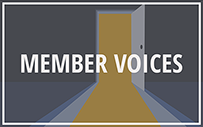
Volunteering with NACE can create uplifting opportunities to be involved with the changing workforce and allows members to learn skills needed to be a better director, professor, and a person.

When the University of Texas University Leadership Network launched in 2013, it had two main goals that remain in place today: to help students graduate in four years and to provide students who are under-resourced with an opportunity to participate in various forms of experiential learning without having to work.
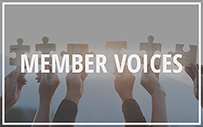
Volunteering with NACE is a great way to learn how an organization works while also making lifelong personal connections and developing the skills needed to thrive professionally.

The North Dakota State University Career and Advising Center team has found that its Employer Town Halls held via Zoom are a great way to disseminate information in a different format than just an email.
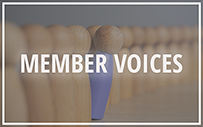
It doesn't matter if you've been part of NACE for just a short time or for years, there are many ways to get more involved and contribute in ways meaningful to you.
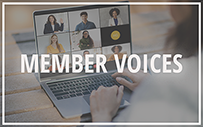
Getting more involved with NACE is a great way for members to grow personally and professionally, especially for those who are new to their industry.

The Career and Life Design process that Hassan Akmal created is evolving. Today, AI makes this pursuit more tangible than ever, acting as an unprecedented sounding board for self-exploration.
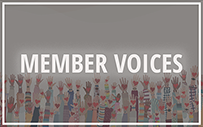
Large organizations can be intimidating, but getting more involved and finding your community within an organization can help you thrive both personally and professionally.
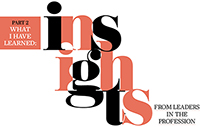
In the second of a two-part series, 13 NACE leaders offer their insight and guidance about what they have learned in their time in the profession.

The University of North Florida (UNF) has historically offered innovative programs, services, resources, and events to ensure students are successful and career ready by the time they graduate. This approach led leadership to embark on a new path at the intersection of UNF’s core functions and NACE’s career readiness competencies.
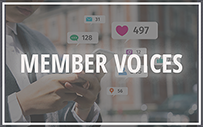
LinkedIn can be a valuable tool for students preparing to enter the workforce, but it can also cause students to miss out on opportunities if not used responsibly.

The College of Arts and Sciences at Indiana University Bloomington recently launched its Pillars Undergraduate Experience, a framework designed to prepare students for academic achievement and lifelong career success.
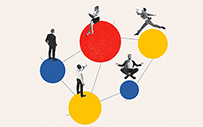
Career services professionals must prioritize teaching students how to build social capital and cultivate ties within their chosen career fields.

Among the main reasons why career center staff are not using AI with students are concerns about the technology collecting students’ personal data.

Networking is a valuable tool for students that offers both career exploration and access to opportunities, particularly in a competitive job market. To get the most out of its networking events, USC Viterbi School of Engineering Career Connections has taken them through several iterations to reach their current format.

There are two primary reasons that career centers might lack confidence in using AI in their work: speed and ethics.
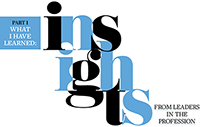
In the first of a two-part series, 13 NACE leaders offer their insight and guidance about what they have learned in their time in the profession.

Aurora University’s career services office uses ChatGPT as a tool to help its students prepare for job interviews and teach them ethical ways to use generative AI.

As a job candidate, students should pursue openings where their skills match the company’s needs, and by dissecting a job description and ensuring those key words find their way into their resume, students can stand out during the screening process.

To produce career-ready graduates, the Lehman College School of Business intentionally equips its students with competencies through the promotion of applied learning in its three programs.

Matt Purdy of Murray State advises career services professionals to think about the resources they are trying to obtain and find data that not only align with what they are asking for, but to connect them to the priorities of their administration or institution.
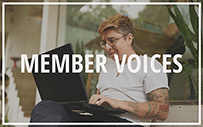
Despite the changes caused by COVID-19, some employers and educators have reinstituted traditional recruiting practices that may now present barriers to students impacted by the pandemic.

The Georgia Tech Career Center, large-college winner of the 2024 NACE Career Services Excellence Award, hired eight new staff members across various functional areas within the office in a process that aligned with the institute’s DEI Blueprint to, in part, closely reflect the demographics of Atlanta.

With professional pursuits, quality invariably outweighs quantity, so career services staff should work with students to find good fits rather than trying to meet arbitrary deadlines.

Fear of AI has turned into curiosity, says Jeremy Schifeling, who reports seeing more and more career leaders getting excited about leveraging these tools for both their students’ and their own success.

My staff wants to go above and beyond. Unfortunately, wanting something and having the resources to do it are two different things. Acting as if we have the resources is harmful to the very staff who want to provide exceptional services.
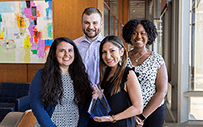
The University of Illinois Chicago, College of Liberal Arts and Sciences Career Development Office, winner of the 2024 NACE Career Readiness Excellence Award, designed an innovative eight-week, one-credit career strengths-based course for its students.

The college winner of the 2024 NACE Technology Excellence Award, University of California, Berkeley Career Engagement used Google Workspace products to create a data-visualization dashboard to tell its story in a low-cost, efficient manner.
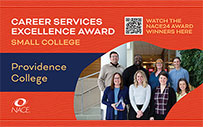
The small college winner of the 2024 NACE Award for Career Services Excellence, Providence College’s Chirico Career Center has created and honed an engaging program designed to help students as they consider their majors and explore potential careers.
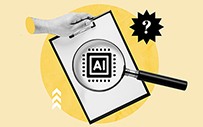
Career services professionals can help students use AI tools effectively and avoid common traps and mistakes.
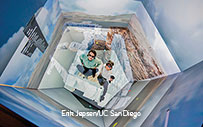
The UC San Diego Student Employment Program employs more than 6,000 students who work in more than 170 departments across campus.

Student employment can be a potent catalyst for transformative learning experiences, but is often relegated to the sidelines.
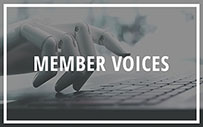
Because of the potential challenges of using career services effectively, international students may turn to artificial intelligence for their career-related questions without fully realizing the possible negative outcomes related to it.

Landmark College, an institution exclusively for students who learn differently including those on the autism spectrum, champions a strengths-based model and gives students the skills and strategies they need to achieve their goals.
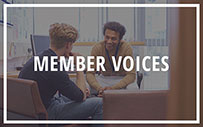
When it comes to advising students on the importance of professional skills, demonstrating those skills in your day-to-day can go a long way.

For Spring Hill College, the work to attain a high knowledge rate on its first-destination survey begins in the fall.
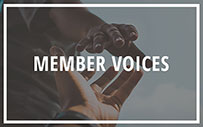
NACE offers many options to get involved, and those who choose their pursue volunteer opportunities can experience both personal and professional growth.
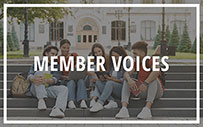
Career centers that integrate into all parts of a student’s journey in college are better positioned to effectively serve students and demonstrate their value on campus.

Cayuga Community College’s career services office launched its microcredentialing program in 2018. Since then, it has been building microcredentials in the non-credit and credit side of the institution, including developing its microcredential program and updating it to an online learning platform.

Despite achieving a knowledge rate of 90.6% on its most recent first-destination survey, the Roanoke College career center is tweaking the survey’s process to improve it.

Centre College’s three-year average knowledge rate for its first-destination survey (FDS) stands at an impressive 98%. This is especially notable given that the survey wasn’t required for students until 2023.
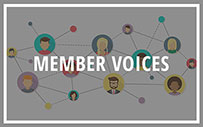
Because students may lack the professional network to get noticed, career services staff can help by leveraging their own networks to highlight students to potential employers.

A pilot study conducted among cooperative education students at University of Cincinnati tested the value of providing students with flexible due dates to help them manage their mental well-being and grow their project management skills.

The University of Dallas career development office listened to student feedback to pivot from texting students career-related information to sending messages via email. The results have been impressive.

A former dean now working with hiring organizations offers five lessons for how higher ed can work with industry and move the needle for students—especially low-income and first-generation students.
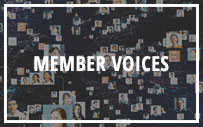
Students who begin building their social media presence while still in college will have an advantage after graduating, and there are several easy steps they can take to get started on LinkedIn.

The University of Western Florida CDCE recently launched its AI Career Toolkit to address AI use, challenges, and possibilities by students exploring careers and the career coaches supporting them.

The career services office at Colorado Boulder launched an Artificial Intelligence Working Group to collect information on developments, discuss campus applications of AI, and more.
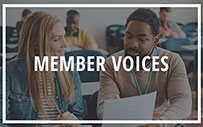
The classroom can be a valuable resource for students to develop the skill and mindset to think of themselves as professionals and describe how their skills relate to their field.

UCSD’s Rady School Career Management Center is addressing and creating resources around AI to guide students in its effective, safest, and ethical use during the college recruiting process.

Career centers looking to increase FDS response rates might want to focus on communicating regularly with students, providing participation incentives, and ensuring the process is convenient for students.
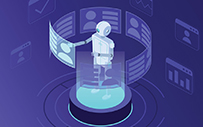
Automated video interviews (AVIs) are an emerging recruitment tool. As success factors in AVIs may differ from face-to-face interviews, it is important for career services practitioners to know how to help their students prepare for these new types of interviews.
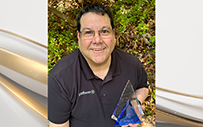
Not only does PathwayU offer student assessments, but it also provides guidance based on predictive knowledge that accounts for the user’s sense of purpose and meaning.
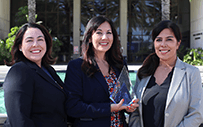
CSU Fullerton’s “I Am First” program teaches first-generation students how to create social capital through a curriculum that empowers students to cultivate agency in their career search.
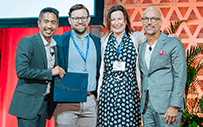
The Villanova University Disability Inclusion in the Workplace Conference is a half-day program designed primarily with hiring employers in mind to help them build disability inclusion into internship and entry-level hire experiences.

Dominican University, a Hispanic-serving institution with 64% of students identifying as Latinx and located just outside of Chicago, launched its successful career development program in its Brennan School of Business in fall 2017.

The Career & Professional Development office at the University of Denver developed a multipronged approach to work toward its ambitious goal to engage 90% of undergraduates annually.

The role of today’s primary role academic adviser is robust and multifaceted. Advisers must continually provide supportive outreach and engagement to address student interests, develop academic plans, and identify career paths from the time students first enroll throughout their college experience, and oftentimes, well past graduation.

In 2021, Hope College’s Boerigter Center for Calling and Career partnered with several computer science majors to develop a custom, interactive application for the college’s students and visitors to see a visual representation of the locations of Hope alumni around the world and their jobs. It also shows current job and internship openings in a given city.
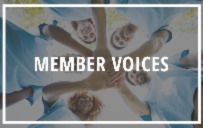
Through relationships made through volunteering, you can gain knowledge and perspective to grow both professionally and personally.
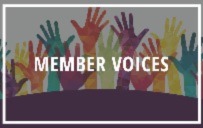
Deciding to volunteer may not always be an easy decision, but it will ultimately be a personally fulfilling one.
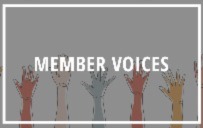
While people often consider the professional benefits of volunteering, it can also have a positive impact on your mental health, too.
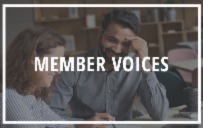
Serving as an advisor and mentor often requires working with students to achieve their academic goals while also adjusting to a new social environment.
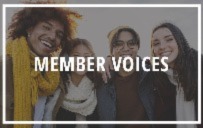
No matter what the “volunteer language,” there is always an opportunity to give back and support others.
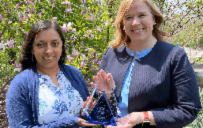
Members of the NACE Community recently offered some suggestions to their colleagues for books to add to their summer reading lists.

Tulsa Community College’s “Job Market Monday” Facebook posts include information from employers about current local job openings or internship opportunities, each in a digital flyer format.
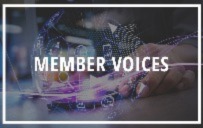
It’s useful to take time to develop your strategy and be mindful of possible trouble spots such before sharing new ideas.
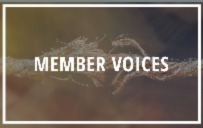
Employers who ask about weaknesses during an interview are typically seeking personal awareness and how a student can frame a strategy to minimize the consequences.
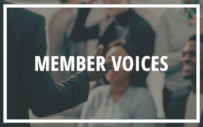
Every year, NACE hosts their Management Leadership Institute (MLI), which is designed to help participants prepare for leadership roles.
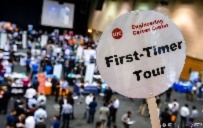
The University of Illinois at Chicago College of Engineering Job & Internship Fair Tours were created to engage more first- and second-year students in job fairs and to reduce barriers to attendance.
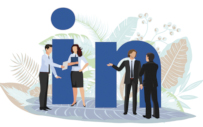
As a career coach, I meet with both domestic and international students who are hoping to build their connections in a variety of industries. Many of our newer graduate programs in the Katz School of Science and Health can be completed in as little as 12 months, so there is a relatively short runway for these students to develop and cultivate their industry connections.

I’ll never forget my first experience at MEGACON Orlando, the largest pop culture convention in the southern United States, attended by more than 140,000 people annually. The hundreds of merchandise booths, once-in-a-lifetime meetups with celebrities, jaw-dropping character costumes, and all-day schedule of live entertainment kept the weekend packed with engaging experiences. The moments I remember most, however, came in smaller, more personalized packages:
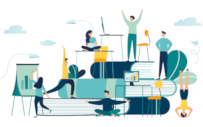
Skill development and early engagement are key priorities of New York University’s (NYU’s) Wasserman Center for Career Development. It addressed both of these priorities by developing a program that embedded career readiness competencies in a course for first-year students.
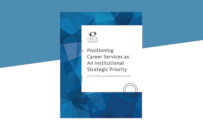
Career services needs to be strategically positioned on campus to provide the vision, guidance, and relationships to demonstrate its importance and value and to maximize student outcomes.

News articles shout about the continuance of the “Great Resignation” or “Great Reshuffle” across all industries. As of July 2022, the U.S. Department of Labor (DOL) reported that quit rates (individuals voluntarily separating from their organization) continue to hold steady in the field of education, with more than half a million exits since the beginning of 2022.
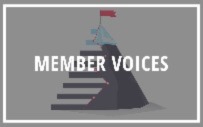
Students who set goals and develop a specific and measurable plan to accomplish that goal are more likely to be successful, and staff advisers can play a key role in this process.

The University at Buffalo’s Career Design Center has put an emphasis on maximizing available technology tools that can improve operations and better meet the needs of students and employers.

In recent years, the overall knowledge rate of Davidson College’s first-destination survey (FDS) has been near or above 90%. Davidson has found several steps—such as getting an early start, using texts, and providing tailored information—to be helpful in attaining and maintaining a high FDS knowledge rate.

“Speed interviewing gives students strong, real-world practice on their interviewing skills in a low-pressure environment,” says Susan Proctor, who is the employer development manager in the career center.

While looking to use gamification to create a fun and interactive career development program for her students, Merry Olson hit on an idea that has created much interest among career services practitioners.

The Community College Research Center (CCRC) at Teachers College, Columbia University recently published a new practitioner packet that provides guidance to colleges seeking to redesign their new student onboarding practices.

Career fairs are part of the lifeblood of career services programs—and important events for students and potential employers. Many career centers are thinking of moving their career fairs online in the fall.

Yale University’s Office of Career Strategy is undertaking an aggressive personal outreach effort to graduating students who indicate they are “still seeking” on the university’s first-destination survey.

In this time of disruption and uncertainty caused by the coronavirus pandemic, when many career services practitioners are working from home, it is crucial for them to stay connected, says Tammy Spenziero, who is in a unique position to offer guidance on working remotely.
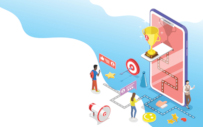
With no additional budget, Clarion’s Center for Career and Professional Development built and implemented a mentor program for students.

How do you get more students to attend your career fairs? Career services staff often brainstorm new ways to get more students in the door—and NACE members are sharing their latest ideas.

At the University of South Carolina, career services is working to make career readiness and employability everyone’s responsibility with its career champions program.

What tasks do your work-study students do? Career services professionals noted their student workers create content, conduct employer outreach, and more.
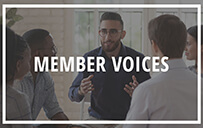
While taking that first step towards volunteering may feel daunting, especially for introverts, it can end up being a very rewarding experience.

The University of South Florida Sarasota-Manatee flipped the tables on the traditional career fair concept and held its first reverse career fair with much success.

Career success means a commitment to lifelong learning to add skills and credentials that employers need. The adaptive innovator—or T-professional—does just that.

Schools that conduct an annual FDS to capture information on how their new college graduates fare following graduation can benefit their own institutions and demonstrate the value of higher education.

How can your career center help students to prepare for their mock interviews and set up the mock interviews to maximize the experience?

When it comes to maximizing job fair attendance, there’s bit of quick advice from the NACE Community: Don’t hold job fairs on Friday.

The winning team in the STEAM category of the NACE 60th Anniversary Innovation Challenge conceptualized a web-based tool that would help match students and employers as a lead-in to career fairs or on-campus interviews.
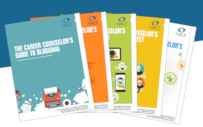
The Career Counselor’s Guide to Social Media will help students learn about social media as a job-search resource and career services professionals show students how to maximize their opportunities online.
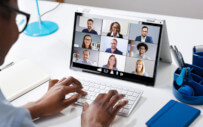
How do career services offices handle their for-credit career courses? NACE members share their approaches.
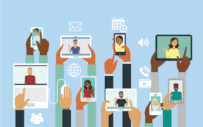
The Stony Brook Center for Remote Internships & Experiential Learning provides practical resources for employers operating remotely during the pandemic and beyond.

Members of the NACE Community recently offered some suggestions to their colleagues for books to add to their summer reading lists.

The reopening plan developed by the UNLV College of Engineering aims to minimize direct contact for services that can be effectively delivered online.

Career services staff share their plans and ideas for how they might handle drop-ins in an in-person or virtual environment this fall.

How do career centers handle alternative experiential learning experiences such as contests and hackathons that may not fall into a college’s or university’s internship bucket?

Last March, a group of five Florida schools shifted their joint in-person reverse career fair to a virtual “venue” in just two weeks, but with positive results.

In this new era of social distancing, what is replacing the firm, professional handshake?

NACE members offer ideas for managing the career center staff’s interactions—whether in person or virtual—this fall.
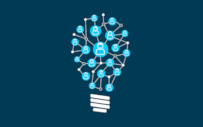
Some career centers are noticing a decrease in employer and student registration for virtual career fairs. What strategies might increase the number of employers attending?

The KU Engineering Career Center’s social media takeover program is especially important now, when employers are unable to engage students in person.

Many career centers have approached career education as instruction into a presentation of who our students are on the outside. We can change the angle from which we see things and get students to believe and have a renewed faith in themselves.

The University of Georgia Career Center has facilitated more than 20 employer Instagram takeovers this semester.

The terms “resiliency” and “wellness” are employed in many settings, but how do they impact and what do they mean to our students applying to jobs, internships, and graduate programs, while surviving a global pandemic?

Having a formal policy helps the team in the University of Oregon’s career center team with consistency when considering postings from employers seeking unpaid interns.
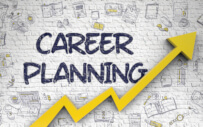
Career services professionals have been wrestling with helping students pursue work that provides meaning and allows them to make an impact. Career services professionals can benefit from a calling-centered approach to career coaching.

NYU’s Wasser-Buddies mentoring program helps shape institutional culture, equalize the experience of new hires, increase knowledge transfer, and enhance leadership development.

The UNO Campus Career Council supports students in achieving their career ambitions through shared knowledge of best practices and industry training.
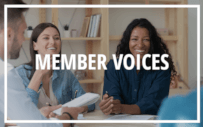
Volunteering with NACE can create meaningful professional and personal connections, develop and build skills on a resume, and create opportunities for growth.
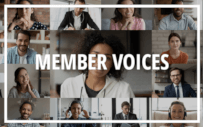
By getting involved in organizations that extend beyond your job, you can develop skills and relationships that can help you grow both personally and professionally.
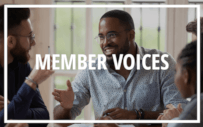
Volunteering can help students gain valuable experience and learn about what workplace environments best suit their needs, which will be helpful when applying for jobs after graduation.
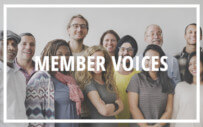
The National Association of Colleges and Employers (NACE) have scheduled the launch of Member Voices, a platform exclusively featuring member-created content with new articles published weekly.

The shift to the virtual space has allowed for collection of career fair data that may have been out of reach with the traditional format.
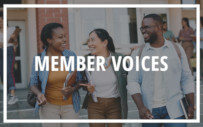
When working with employer partners, career services teams must keep in mind that career centers are not staffing agencies and student needs must come first.

TAMU-CT is building employer engagement opportunities in partnership with faculty that are “a little less virtual,” but better meet the needs of its unique student population.

Reverse career fairs and reverse networking events can offer tremendous benefits, especially when held at small scale with specific program areas.
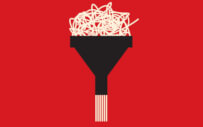
Career work is transformational, not transactional. If an institution clings to the severely outdated myth that universities should " place" students through their career centers, student learning, as well as critical connections with stakeholders, can be lost.

A collection of syllabi for career development and career exploration classes.
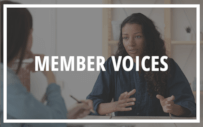
As students prepare their resumes and practice interviews for internships and postgraduation employment, it is important to remember that failures can be as important as successes.
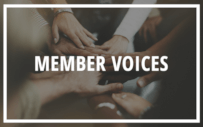
April is National Volunteer Month and a great time to reflect on all the positive benefits one can receive through volunteering.
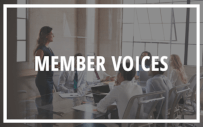
Getting involved in a NACE Affinity Group can be a great opportunity to connect with peers and gain valuable insights.
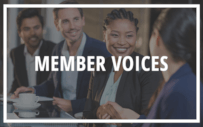
People may try to rationalize why they “can’t,” but NACE volunteers share their experiences and explain why everyone “can."

Auburn University’s high knowledge rates on its recent first-destination surveys is driven by the survey being part of a course all students are required to take.

A workshop at Notre Dame allows students to experience interviews from the perspective of both the interviewer and the interviewee, giving them valuable insight into the process.
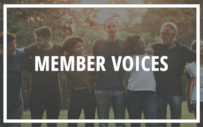
When it comes to volunteering, sometimes the opportunity can come unexpectedly, but accepting the offer can be fulfilling both professionally and personally

Identify faculty partners willing to work collaboratively with the career services office in a partnership to promote student success, including reaching their personal, academic, and professional goals.